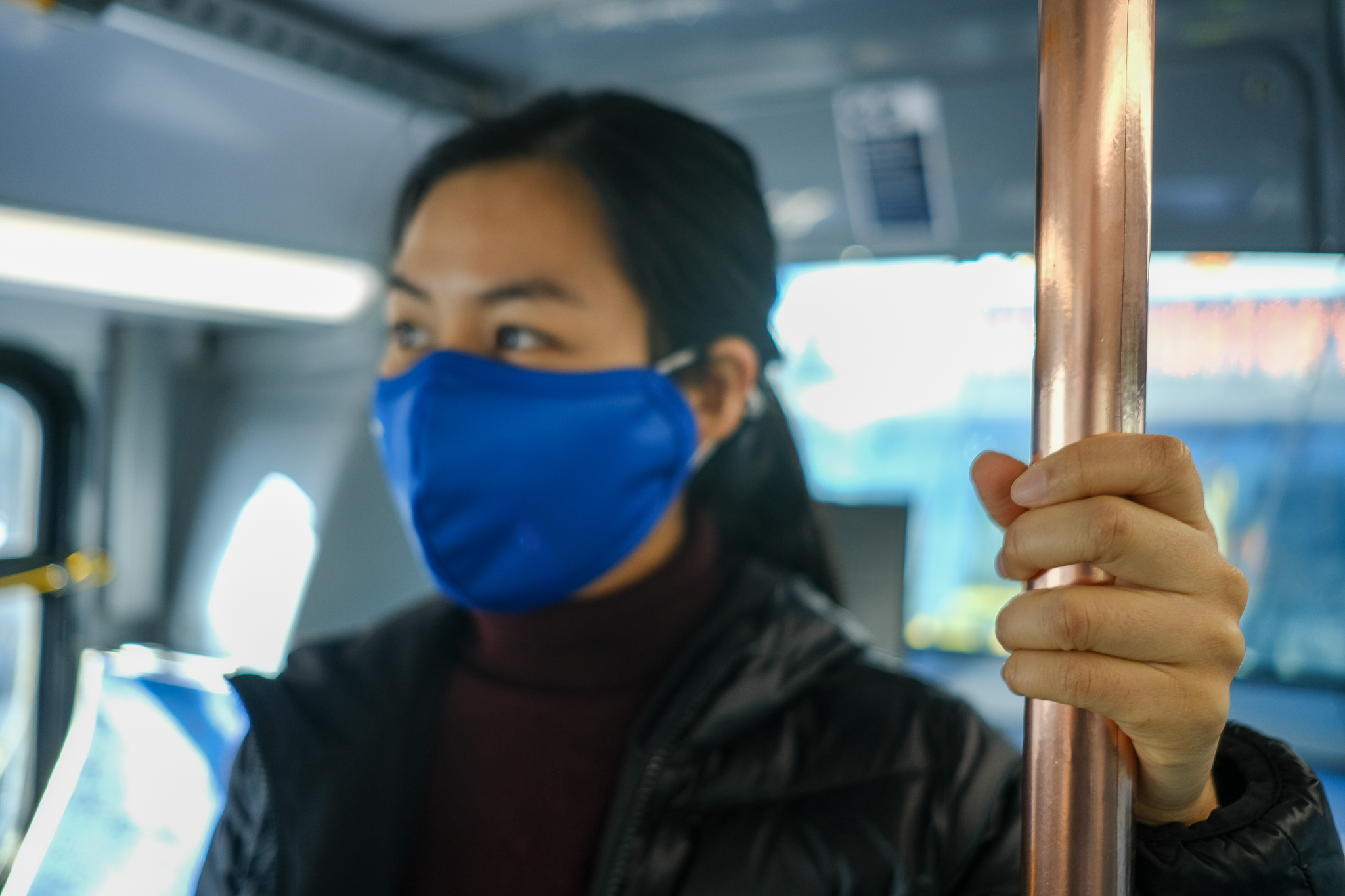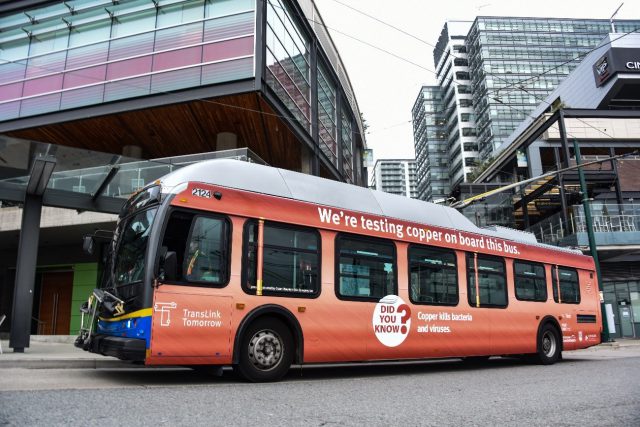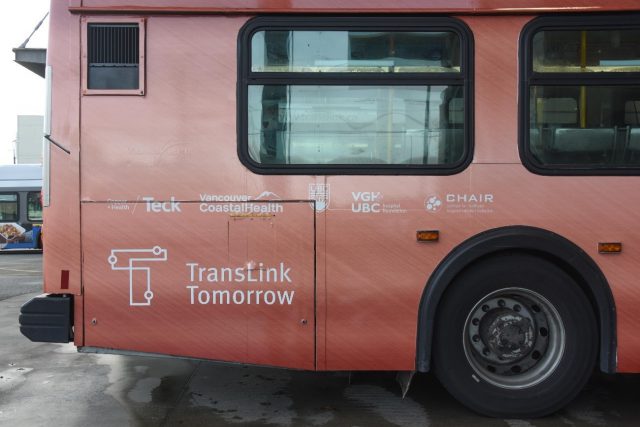Cutting-edge transit — Exploring new ways to combat COVID-19
Cutting-edge transit — Exploring new ways to combat COVID-19

Over the past eight months, our team at TransLink has been working tirelessly to keep Metro Vancouver’s transit system as safe as possible. Given that our province is now in the second wave of the COVID-19 pandemic and case numbers are on the rise, it’s imperative that we continue to explore new ideas and evolve how we deliver our vital services.
In recent weeks, our team has been thinking creatively about new ways to keep our customers safe. We’ve also added a few new terms to our everyday transit vocabulary: copper and organosilane (the latter of which took some time to pronounce correctly – OR-gan-OH-si-leen). You may be wondering what these materials have to do with public transportation.
Last week, our region became the first in North America to pilot the use of bacteria and virus-killing copper on the high-touch surfaces of a handful of trains and buses. Copper alloy surfaces can kill up to 99.9% of bacteria and viruses within several hours.
This industry-leading project is part of a study that will see various copper-based products and a protective coating called organosilane installed on SkyTrain cars and trolley buses to test how effective these agents are at destroying potentially harmful microorganisms on transit. The results of this pilot could have wide-reaching impacts on infection prevention for the transit industry and other industries that rely on shared public spaces.

Our goal is to make transit one of the safest public spaces throughout the pandemic and this copper initiative builds upon TransLink’s Safe Operating Action Plan. Along with improved cleaning practices, maintaining physical distance, and a mandatory mask policy, we’re hoping this new method will become another tool in our health and safety toolkit to help customers ride confidently.
The good news is that so far, these new measures and initiatives are working. To date, BC’s Provincial Health Officer has not traced a single case of COVID-19 transmission to public transit in Metro Vancouver. In fact, across the globe there haven’t been very many, if any, cases of COVID-19 transmission on transit to date – and a recent study by the American Public Transportation Association found no direct correlation between transit use and COVID-19 transmission. (See study)
Tackling a global pandemic in our industry requires thinking differently, doing things differently, and collaboration with new partners. This latest project could only be made possible through a strategic partnership with Teck Resources Limited, Vancouver Coastal Health, VGH & UBC Hospital Foundation, Coalition for Healthcare Acquired Infection Reduction (CHAIR) Canada, and the University of British Columbia.

The pandemic has changed how we deliver our services, but it hasn’t changed the why behind it all. Reflecting on my tenure at TransLink in my final months as CEO, it’s clear to me that that an unwavering focus on engagement, partnerships, and connections has brought our region to a strong position and this same philosophy will help lead us into the next chapter. Projects like the copper and organosilane project exemplify this spirit.
We’re doing our best to support Metro Vancouver and will have more to share in the coming months. Stay tuned.
Kevin Desmond, Former TransLink CEO
Kevin Desmond is the former Chief Executive Officer of TransLink, Metro Vancouver’s transportation authority that moves 500,000 people every day. He oversaw planning, financing, and management of a region-wide multimodal transit network that includes bus, rapid transit, passenger ferry, para-transit, and commuter train service, with over 8,000 employees.





